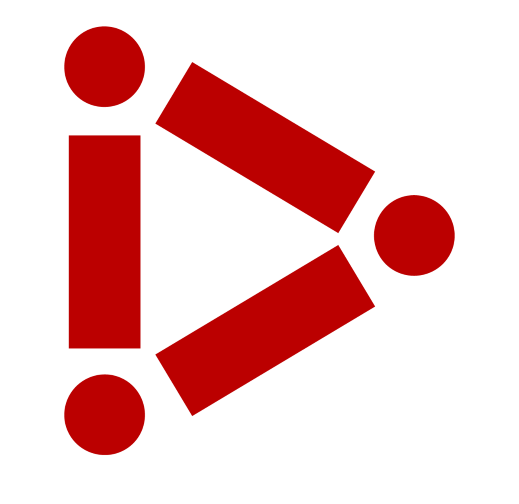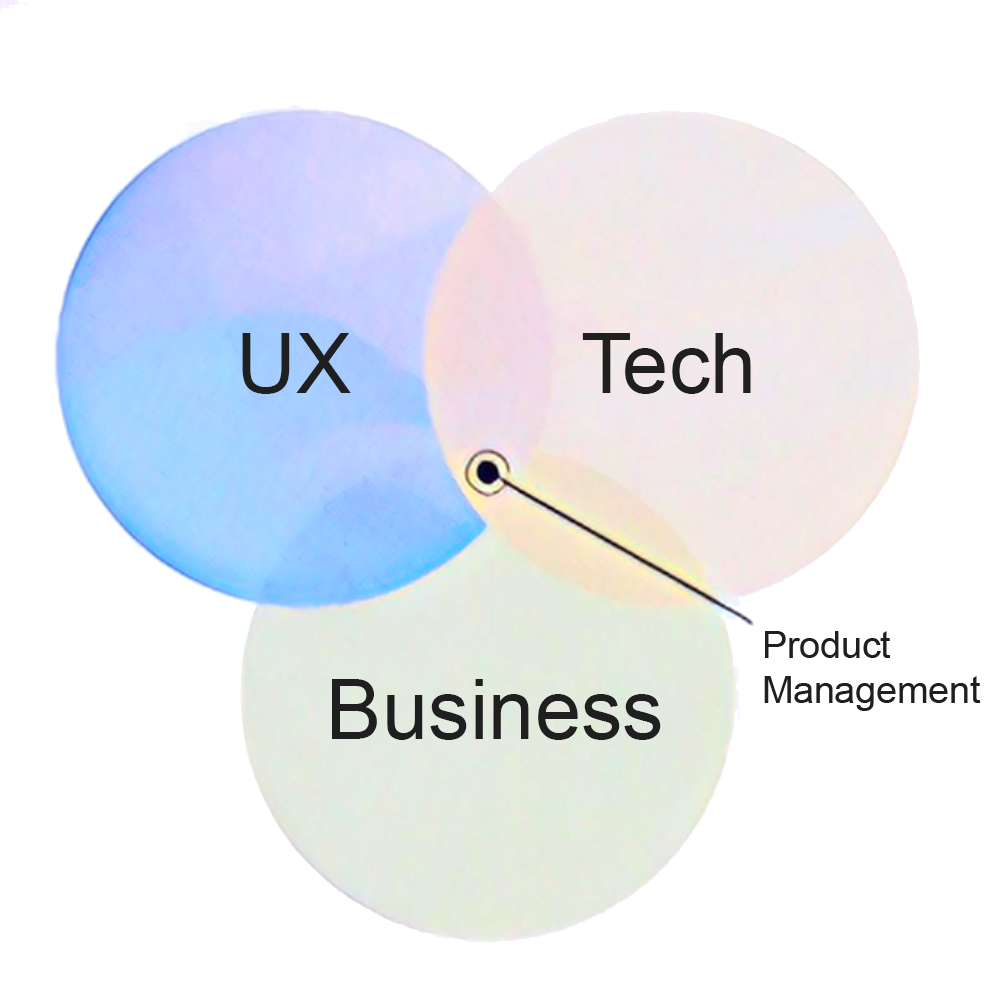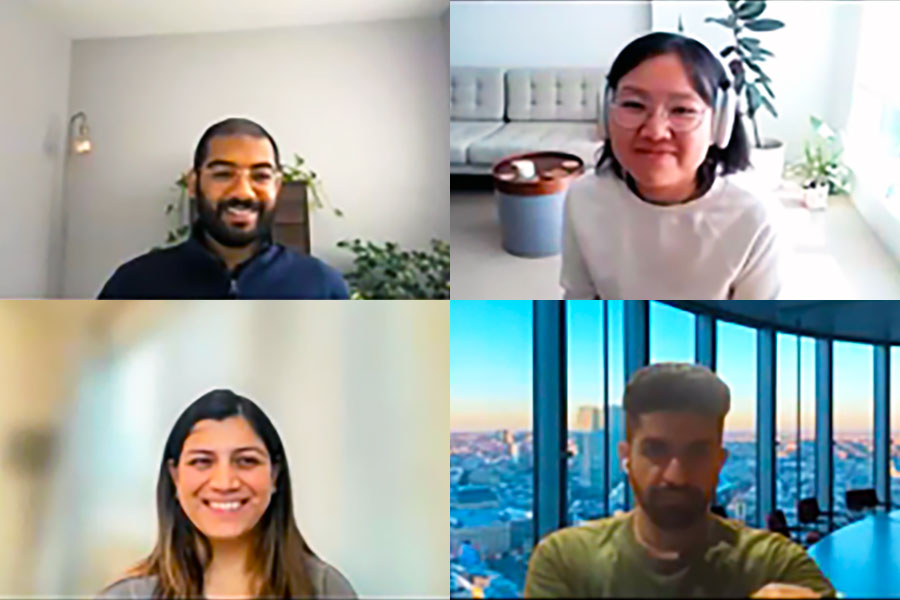
Product Managers Share Expert Insights About Their Work
Alumni from the MSSM and MIIPS programs shared their stories and expert insights with members of the iii community in a virtual Ask-Me-Anything session.
By Phil Geist
Product managers (PMs) are amongst the highest-compensated, most well-respected professions in the world today, although they might be among the least understood.
It’s a career for problem solvers who enjoy variety in their work. Although high expectations can make this role stressful, product managers are a vital part of many industries, and the work can be extremely fulfilling.
In 2021, Glassdoor ranked Product Manager as the #3 best job in America.
What is a Product Manager?
A Product Manager is the person who creates internal and external vision and lead product development from scratch. These individuals rally teams to turn the vision of a product into a reality. Acting as connective tissue between cross-functioning teams, PMs connect the dots between business strategy, design knowledge, and customer needs.
Product managers coordinate work completed by a wide array of talented individuals like: software engineers, data scientists, and product designers. Product managers traditionally have resided in the marketing organizations of technology companies, but have recently become staples of engineering teams.
What character traits should a Product Manager possess?
- Empathy — to understand customers and team members better.
- Self-awareness — to stay objective and avoid involving their own interests in business.
- Stress-tolerance — to manage emotions and stay calm under constant pressure.
Martin Eriksson, product leader extraordinaire and founder of ProductTank, initially summed up product management in a simple Venn diagram that sits the product manager at the intersection of business, technology, and user experience.
Ask-Me-Anything Interview
On Tuesday, November 8, 2022, members of the iii community had the opportunity to participate in an “Ask-Me-Anything” discussion with iii alumni Divya Sabade, Manish Chhabra, Ranveer Katyal, and Eileen Wang. The alumni shared their journey into industry and how they became PMs and they offered insight for individuals who may have aspirations to enter the field.
iii: What are companies looking for in a resume/a person to become their Product Manager?
Manish Chhabra (MSSM '18): Algorithm companies like F.A.N.G. look for what impact you have created. They might ask “How many customers have you impacted?” or “How much revenue have you created?”. Use those types of keywords to help craft your resume. Use words like “I” vs “we”; “tell me a time when you led a project…” use “I statements” to answer their questions.
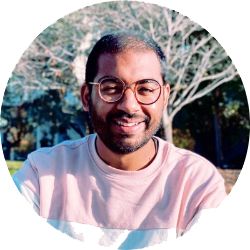 "Frame things to highlight the difference you made on the team. Think about what would have happened “if you weren’t there” and try to express what you contributed individually."
"Frame things to highlight the difference you made on the team. Think about what would have happened “if you weren’t there” and try to express what you contributed individually."
RANVEER KATYAL (MIIPS '19)
Staff Product Manager, Ancestry
iii: What is the difference between working in a startup vs. a larger company as a PM?
Divya Sabade (MSSM '15): Try to understand the company’s vision and fiscal goals. Learn the organizational structure and figure out what impact you can make as a PM to achieve those goals. An impact you make can be related to business, increasing revenue, or customer retention. Startups are usually pretty lean so most people will know who you are. You’d probably be the PM Marketing Manager as well as the Product Manager. At a startup you’ll likely have higher visibility and a greater opportunity to make more of an impact. You can still have an impact in a larger company, but you will have to figure out the organizational matrix. This process includes figuring out stakeholders and identifying the decision makers you have to inform. This process takes longer at a company like Walmart than it did when I was at a startup.
iii: What is the difference between being a PM at a B2C company vs a B2B company?
Manish Chhabra (MSSM '18): In a B2B environment, you have a limited number of customers. B2C is all about customers; in B2B you can talk to customers (talking to financial security customers, others about pain points) but you cannot do the same with B2C - no 1:1 conversations with customers, you have to look for trends (are a lot of customers adopting a feature or are they going to another app?), you do more AB testing in B2C; B2C also does more mocks.
iii: How can you have initial conversations with your employer about transitioning to Product Management?
Divya Sabade (MSSM '15): The journey to Product Management starts with self-evaluation. This involves looking at strengths and identifying gaps. Doubling down and being vocal about my strengths was important so I could make others believe that I could do strategy and road-mapping, because I hadn’t done that before. It’s important to always be flexible, humble, and ready to learn.
iii: How can one break into product management from a non-computer science background?
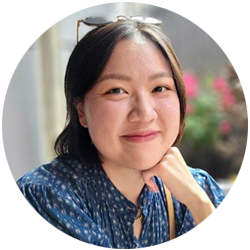 "If you’re not coming from a technical background, be able to reframe and see your past experiences through the lens of a Product Manager."
"If you’re not coming from a technical background, be able to reframe and see your past experiences through the lens of a Product Manager."
EILEEN WANG, MIIPS '20
Product Manager, Twitter
Eileen Wang (MIIPS '20): I used to work in advertising and led a campaign that went through exercises that were similar to what a PM might do. I created a presentation talking about the project I led, how I completed user research, and how I managed the team to work on different assets. I shared how success was measured and what skills and experience are needed to be a PM. Those skills exist widely and there are projects that you’ve worked on that you can reframe. Reflect on what you’re good at and what your story is. Try to use the same language and vocabulary that hiring managers might use when talking about your career.
iii: What is one thing you might have done differently when you were starting on the path to PM?
Manish Chhabra (MSSM '18): I would have attended a lot more networking events; you need to double down on your skillset to be a PM; PM are leaders, the job market is thin; don’t use just the CMU community, branch out to other events; SV Product School has free events that CMU students can also go to; do a lot of mocks (practice 5-6 daily), use websites to test your skills; you have to practice all the PM questions often.
iii: How did you get your first PM job? What is your day to day like as a PM?
Eileen Wang (MIIPS '20): Being a Product Manager is also a negotiation job!
iii: What courses did you find helpful to your PM career?
Eileen Wang (MIIPS '20): The negotiation class I took at Heinz was very helpful. You should go into every meeting thinking of it like a negotiation. The success of a product is also about teamwork. If you can, preplan a lot of meetings with team members to help with the negotiation process. People should know all the cards they have so they know the best ways to communicate and collaborate so there are no surprises along the way to completing a project. The negotiation class went beyond salary and it helps you learn the levers you can pull to be successful.
iii: What are the expectations for a PM intern?
Ranveer Katyal (MIIPS '19): Look at what the company wants you to do and think about what you want to do. When I started my job at Ancestry, I wanted to learn how it worked and what problems customers were experiencing. I also wanted to live in the United States and take on the responsibility of a project. In addition it’s also important to be curious about the company’s mission and culture.
iii: If you have no prior experience, can your master’s degree from CMU get you a PM job? How do you stand out from the competition?
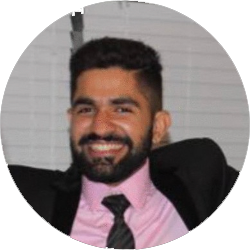 "The degree is helpful, but not enough–you have to do something else, something extra to set yourself apart from the crowd."
"The degree is helpful, but not enough–you have to do something else, something extra to set yourself apart from the crowd."
MANISH CHHABRA, MSSM '18
Lead Product Manager, Docusign
Manish Chhabra (MSSM '18): You can use the CMU name to do a lot of networking but you have to be hungry to do something more. You should go to a lot of events and do mock interviews to prepare yourself for interviews.
Divya Sabade (MSSM '15): Startup interviews are different from larger ones. The Amazon interview process was much different from F.A.N.G. which was different from startup questions; icebreaking questions vs. what is your favorite product vs. what is your experience working with cross-functional teams, insights questions, estimation questions, experience questions; find list of companies you want to apply to (more mid-size rather than large), apply to multiple companies and keep doing mock calls.
Eileen Wang (MIIPS '20): The MIIPS program empowered me with a starting framework to do good work. I would still go through the program all over again if given the choice. The program helped me to earn interviews at companies because I was able to talk about my involvement through a product lens. I was interviewing at Google and Lyft because of my experience and engineering degree.
Ranveer Katyal (MIIPS '19): The program helped me become proficient in design skills. I used projects from school to help segment out what I completed. Compared to usual jobs, you will have to market yourself a bit more than other folks.
iii: Advice for graduating students joining a volatile job market?
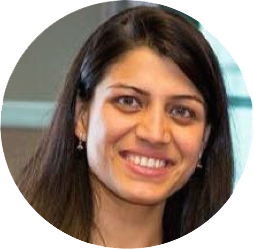 "Grab what you can. Getting a job is more important than landing your dream job at first; no learning is a waste of learning."
"Grab what you can. Getting a job is more important than landing your dream job at first; no learning is a waste of learning."
DIVYA SABADE, MSSM '15
Staff Product Manager, Walmart
Divya Sabade (MSSM '15): I started with tech consulting, because I wanted to attain a H1B visa quickly and knew that a position would lead to that.
Manish Chhabra (MSSM '18): Take what is there, the current market can be confusing. The ultimate goal is to be a PM, so start where you are and build up from there. Many jobs eventually lead to Product Management–so you won’t waste time and will still gain new skills that are related to being a PM.
Eileen Wang (MIIPS '20): I graduated in the height of COVID and there were not many jobs available. I had to tell myself it’s important to not feel overwhelmed. The best thing you can do is be genuine in getting to know the companies you are interviewing with. Think through questions and what you can do to help the position you are applying for. Doing this will help others think of you as the solution they are looking for.
